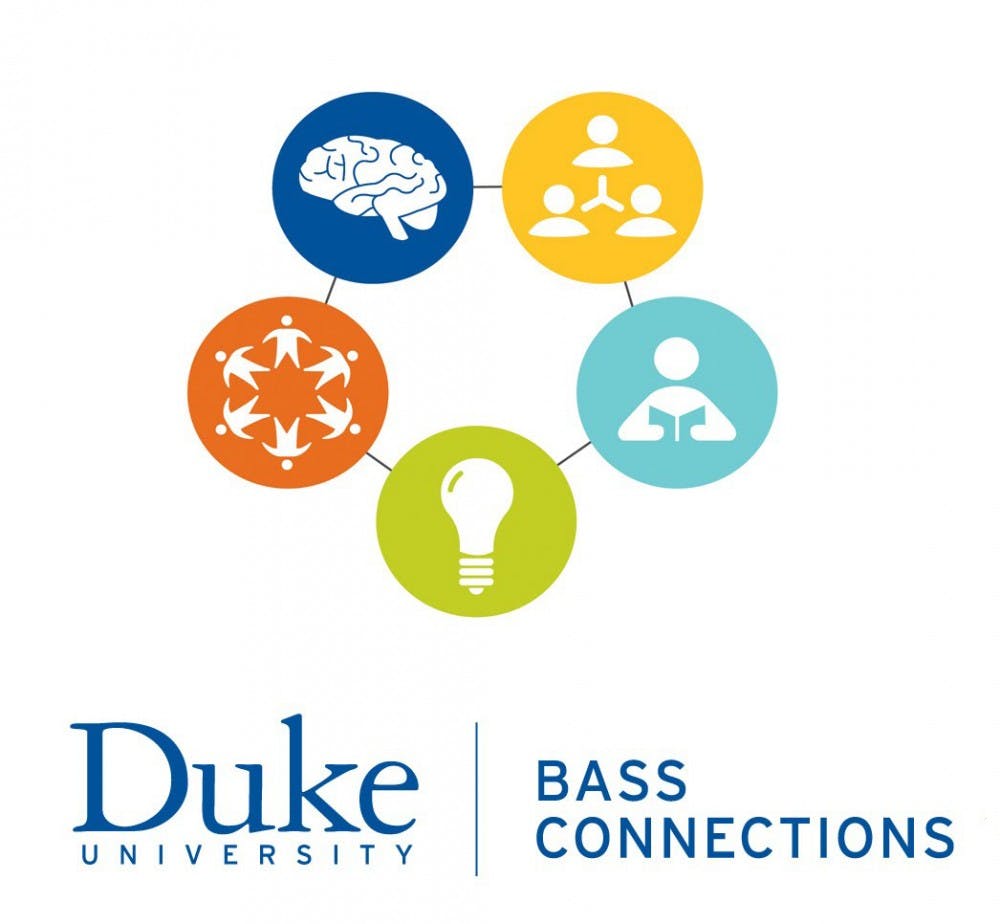The new crop of Bass Connections programs seeks to solve problems ranging from household air pollution in Madagascar to the issue of low youth voter turnout in North Carolina.
More than 1,300 people—from undergraduates to Ph.D. students—have participated in the program since it began in 2013, according to Sarah Dwyer, director of communications for Bass Connections. For the 2017-18 academic year, there are 45 project teams that students can join.
Dwyer noted that several popular projects from 2016-17, such as "Interventions Improving Neurosurgery Patient Outcomes in Uganda," will continue into the next academic year.
“[The patient outcomes project] got a ton of applications last year for just a small number of spots on the team,” Dwyer said, noting the popularity and competitiveness of the team which works with Duke’s Division of Global Neurosurgery and Neuroscience.
Although existing projects may have competitive application processes, Dwyer emphasized the wide variety of new projects that span across many disciplines, including "Visualizing Social Mobility in the Developing World' and "Open Source Education Technology" teams.
Past participants highlighted their diverse experiences with Bass Connections.
Senior Sophie Katz, who is part of the "Art, Vision and the Brain" project, has spent the last two years working in conjunction with the Nasher Museum of Art to explore “how we look at faces.”
Her team has developed an exhibition for the Nasher based on their research and is currently implementing an art program for individuals with autism.
“I have been involved in all aspects of the project, from developing the code for the study to writing the booklet for our exhibition at the Nasher,” Katz said.
In contrast, junior Joshua Grubbs, a member of the Environmental Epidemiology in Latin America: Leishmania 2015-16 team, traveled to Peru to investigate the connections between human and environmental health.
“My role in both projects consisted of helping conduct the field work and gather data over the summer,” he said.
Even though their research experiences with Bass Connections varied, both students expressed their satisfaction with the program. Grubbs said that Bass Connections was an “incredible experience,” while Katz noted that it was one of her “favorite and most valuable” experiences at Duke.
“Our project continually evolved throughout the year, reflecting the input that all of us contributed," Grubbs said. "It was refreshing to be part of a project and be able to shape it, even as an undergraduate.”
Charles Nunn, a professor of evolutionary anthropology and global health and leader of this year's "Cookstoves and Air Pollution in Madagascar" project, said the Bass Connections program is valuable because it allows students to be full participants in a diverse team.
He described Bass Connections as a unique program that forces students and faculty members alike to “step outside [our] comfort zones” and to "take some chances.”
Senior Kirsten Bonawitz, another past participant, urged underclassmen to get involved with Bass Connections.
“As a whole, I believe Bass Connections is a one-of-a-kind opportunity for Duke students,” Bonawitz said.
Get The Chronicle straight to your inbox
Sign up for our weekly newsletter. Cancel at any time.

